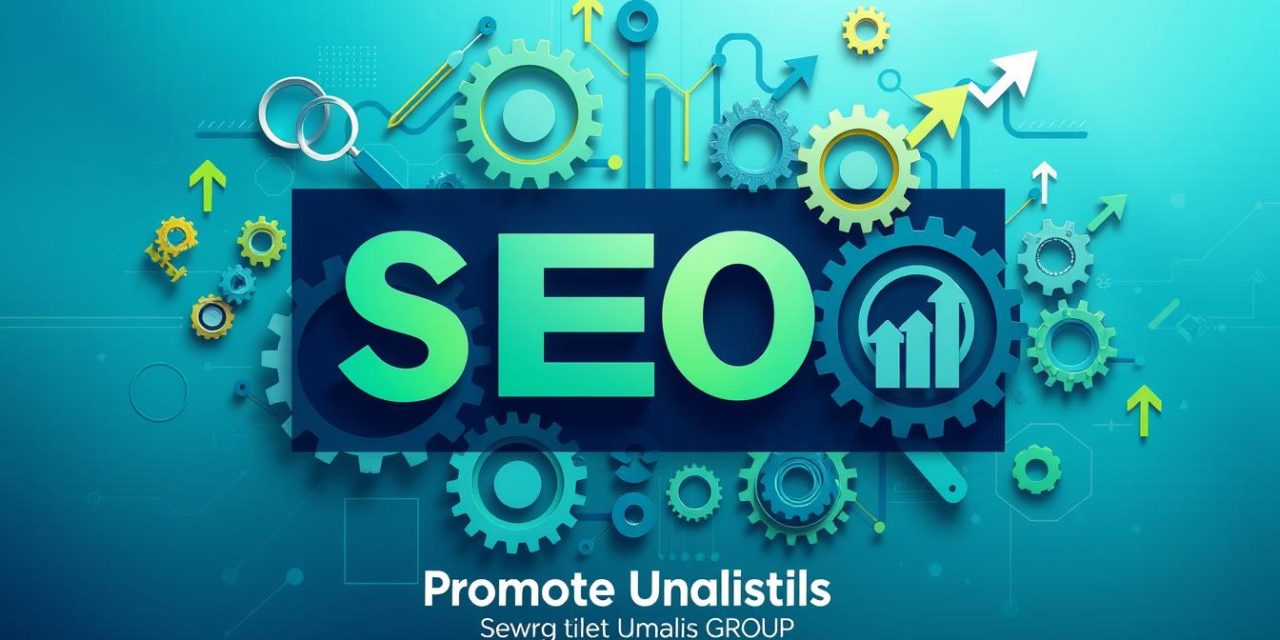Are you tired of seeing your website buried deep in search engine results? It’s frustrating to create valuable content that goes unnoticed. But, the good news is that the right SEO strategies can change this. You can improve your search visibility and attract more visitors to your site1.
In this guide, I’ll share expert tips and techniques to boost your search engine rankings. These strategies are for anyone, whether you own a small business, blog, or e-commerce site. They will help you outrank your competitors and attract your ideal audience. Get ready to unlock your website’s full potential and experience the power of effective SEO2.
SEO is not a quick fix. It’s a long-term investment that requires patience and persistence. Some SEO changes might take months to show results. So, wait a few weeks to see the impact of your efforts in Google Search results1. But, by consistently applying these strategies, you’ll climb the search engine ranks and see the rewards of increased visibility, traffic, and revenue.
Whether you’re new to SEO or want to improve your strategy, this guide is for you. We’ll explore key ranking factors, powerful keyword research techniques, and on-page and off-page optimization. We’ll also focus on user experience to help your website rank higher in search results. Let’s start this exciting journey and unlock a brighter online future!
Table of Contents
Key Takeaways
- Implement proven SEO strategies to boost search engine rankings and drive organic traffic
- Understand that SEO is a long-term investment requiring patience and persistence
- Explore key ranking factors and master on-page and off-page optimization techniques
- Conduct effective keyword research to target the right audience and outrank competitors
- Harness the power of user experience to enhance website performance in search results
Understanding Search Engine Ranking Factors
Google and other search engines use complex algorithms to rank web pages. They look at many factors to decide which pages are most relevant and valuable. While Google’s algorithm considers over 200 factors, it’s important to focus on the most impactful ones for SEO success3.
These algorithms quickly scan billions of web pages to show the best results. They do this in just a fraction of a second4.
What Are Search Engine Rankings?
Search engine rankings show where a web page stands in search results. A higher ranking means more people can find your site. With more web traffic coming from mobile devices, making your site mobile-friendly is key5.
Search engines favor sites that work well on mobile devices. This means better rankings for those sites5.
Importance of Search Engine Rankings
Getting high rankings is crucial for businesses. It helps attract more visitors and boost your site’s visibility. Studies show that longer content often ranks higher, making quality content essential3.
Creating content that’s valuable and unique is vital for good search rankings3.
Key Ranking Factors Explained
Several key factors influence search engine rankings:
- Backlinks: Backlinks from trusted sites are very important for SEO. They help improve your site’s authority and rankings35. More backlinks can lead to better rankings3.
- Content relevance and quality: Creating content that’s engaging and shareable is crucial. It helps earn backlinks naturally and boosts site authority5. Regular updates show search engines your site is current and relevant, improving SEO5.
- User experience: Page speed is a big factor in user experience and SEO rankings. Google highlights it as a key ranking factor5. Having a responsive design ensures a good user experience on all devices5.
- Technical optimization: Site speed, keyword use, and content freshness all help rankings3. Improving page speed by optimizing images and scripts can enhance user experience and SEO5.
| Ranking Factor | Importance |
|---|---|
| Backlinks | High |
| Content Quality | High |
| User Experience | Medium |
| Technical Optimization | Medium |
Understanding and optimizing for these key factors is vital for a good SEO strategy. By focusing on relevance, authority, and user experience, you can improve your site’s rankings and attract more visitors.
Keyword Research for Optimal Results
Keyword research is key to a good SEO plan. It helps find what people search for when looking for products or services. With the right tools and knowledge, you can make your content more visible and improve your ranking.
Tools to Find the Right Keywords
Many tools help with keyword research, each with its own strengths. Moz Keyword Explorer, Google Keyword Planner, Semrush, and Free Keyword Research Tool are top picks. Moz offers 10 queries a month for free, while Google Keyword Planner is free even without Google Ads6. Semrush gives 10 Analytics reports daily and 10 tracked keywords in its free plan, but it’s the priciest option for upgrades6.
Short-tail vs. Long-tail Keywords
It’s important to know the difference between short-tail and long-tail keywords. Short-tail keywords like « SEO » get a lot of searches but are very competitive. Long-tail keywords, like « how to do keyword research for SEO, » get less searches but are more specific7. Using long-tail keywords can bring in more relevant traffic and help your ranking7.
Analyzing Keyword Competition
To choose the best keywords, look at how competitive they are. Tools like Moz, Ahrefs, and SEMrush help find and rank keywords based on keyword difficulty and competition7. For example, « Statistics minor » is easier to rank for than « Statistics major »8. Targeting less competitive keywords with enough searches can help you rank better.
| Keyword | Average Monthly Search Volume | Difficulty Rating |
|---|---|---|
| Statistics degree | 590 | – |
| Statistics major | 1,000 | 55% |
| Statistics minor | 480 | 28% |
By doing deep keyword research, understanding search intent, and looking at competition, you can make your content more effective. This will help drive more targeted traffic and improve your search rankings.
Keyword research is not a one-time task, but a continuous process. Regularly updating your keyword research and strategy is key to keep up with changing search trends and algorithms.
On-Page SEO Techniques
On-page SEO factors are key to boosting your search visibility. They include optimizing website components for search engines9. Focus on title tags, meta descriptions, header tags, and image alt tags. This can greatly improve your website’s ranking and organic traffic.
Pages with higher rankings get more clicks and visitors. This boosts your brand’s trustworthiness9. Good rankings also increase the chances of search engines showing your pages to users. This helps attract more organic traffic9.
Website architecture elements like site speed, mobile-friendliness, and URL structures are crucial for on-page SEO9.
Crafting Compelling Title Tags
Google’s « How Search Works » report highlights the need for specific keywords in title tags, even with AI advancements10. An analysis of 11M Google search results found top-ranking pages often use the exact keyword in their title tags10. Title tags still play a big role in rankings, according to Google10.
The Role of Meta Descriptions
Meta descriptions help searchers decide which result to click on10. Writing unique and keyword-rich meta descriptions can boost organic click-through rates10. Make sure your meta description is under 160 characters for full visibility in search results10.
Image Optimization Best Practices
Optimizing images with SEO-friendly alt tags, proper formats, and sizes improves visibility in text and image searches9. By using relevant keywords in your image alt tags, you can enhance your on-page SEO efforts and improve your website’s accessibility.
Importance of Header Tags
Header tags are crucial for content optimization. They help search engines understand your content’s structure and hierarchy. Using relevant keywords in your header tags can improve your page’s relevance and make it easier for users to navigate your content.
E-A-T (Experience, Expertise, Authoritativeness, Trustworthiness) and keyword optimization are vital components of on-page SEO.
In 2024, valuable SEO content must be unique, super valuable, and optimized for search intent10. Publishing unique content means offering new tips, strategies, resources, design, case studies, or step-by-step processes10.
Off-Page SEO Strategies

Off-page SEO focuses on activities outside your website to improve its ranking. Building quality backlinks from trusted sites is key. It shows search engines your site is reliable and valuable11. Backlinks are Google’s top off-page SEO factor, helping your site rank higher12.
Google’s 2020 study shows a strong link between backlinks and rankings. This highlights links as the most important off-page SEO signal13.
Building Quality Backlinks
Getting authoritative backlinks can boost your site’s ranking in search results12. There are two main types of backlinks: natural and self-promotion links12. Content marketing is a key technique for earning backlinks and increasing media attention11.
Long-form content gets more links than short posts. Research-backed content also attracts many backlinks from different domains13.
Engaging with Social Media
Social media marketing is crucial for building a loyal following and increasing brand awareness11. Platforms like LinkedIn, Facebook, Twitter, and Instagram have high domain authority. This makes social media a powerful off-page SEO strategy12.
Social media profiles can rank in search engine results, affecting your brand’s reputation and visibility12. YouTube videos can also boost branded searches, enhancing your brand signals13.
Guest Posting as a Strategy
Guest posting expands your reach to new audiences and enhances your brand authority11. It drives traffic back to your site by contributing quality content to industry sites11.
Guest posting allows you to showcase your expertise and build quality backlinks. This improves your search engine rankings12.
Other effective strategies include local SEO, brand building, broken link building, digital PR, and influencer marketing11. Brand tracking tools help monitor your brand mentions over time13.
User Experience and Its Impact
User experience (UX) is key in SEO. Search engines like Google value websites that offer a good user experience. They know happy users are more likely to come back and stay longer14.
By improving UX, website owners can boost their rankings and make their site better for visitors.
Site Speed and SEO
Site speed is a big part of UX and SEO. Slow sites can scare off 82% of shoppers, and 45.4% might not buy if it’s slow15. Fast sites are favored by search engines.
Optimizing images and using caching can make sites load faster. This leads to happier users and better rankings.
Mobile Responsiveness
Now, 62% of web traffic comes from mobile devices15. Having a site that works well on phones is essential. Responsive design makes sites look good on any screen.
74% of users will come back if a site works well on mobile15. Google also favors mobile-friendly sites, making mobile optimization crucial for SEO.
Navigation and User Engagement
Good navigation and design keep users interested and reduce bounce rates14. Easy-to-use menus help visitors find what they need. This encourages them to stay longer and explore more.
Orphan pages can be a problem for big sites15. Making sure all pages are linked and easy to find helps with user engagement and search visibility.
Content readability, color scheme, and visuals also matter for UX. Easy-to-read content keeps users engaged and interested. A clean design with a black font on white and nice visuals makes a site more memorable.
In summary, UX and SEO go hand in hand. Fast sites, mobile-friendly designs, easy navigation, and engaging content are key. By focusing on these, website owners can improve their rankings and give users a great experience.
Content Creation Best Practices

In the world of content marketing, making high-quality content is key. Google wants your content to be accurate, complete, original, and well-presented16. By doing this, you can draw more visitors and make your site more visible.
Importance of High-Quality Content
Google loves websites that offer trustworthy and expert content, especially for YMYL content16. To rank better, use primary keywords in important places like title tags and URLs17.
Remember, many searches don’t click on anything. Instead, they get answers directly from Google16. Providing direct answers can make your pages show up as featured snippets or in voice searches16.
Content Freshness and Updates
Updating your content regularly keeps your site relevant and authoritative. This shows you care about giving your audience valuable info.
When updating, aim to make your content better, more relevant, and complete. Use tools like Google Analytics to see what works and what doesn’t. By constantly improving, you can get more backlinks, which search engines see as a sign of quality18.
Incorporating Visual Content
Visuals like infographics and videos can make your content more engaging. Choose the right image format to balance size and quality17. Compressing images helps your site load faster, which Google likes17.
Remember to add alt text to your images. It helps search engines and screen readers understand your content17. Also, consider using lazy loading to speed up your site17.
By following these tips and focusing on evergreen content, you can boost your search rankings and get more organic traffic.
Local SEO Enhancements
Improving your local SEO is key for businesses aiming at local customers. Local and organic searches make up 69% of digital traffic, often with « near me » searches19. It’s vital to boost your local online presence. Google saw a 100% jump in « shopping near me » searches on Google Maps in 2022, highlighting local SEO’s role19.
Google My Business Optimization
Optimizing your Google My Business profile is crucial for local SEO. 77% of people use Google for local searches19. Make sure your business info is up-to-date. Include high-quality photos and relevant categories to help customers find you.
Responding to reviews can also boost your visibility and attract more visitors20.
Local Citations and Directories
Listing your business in online directories and local listings builds a strong online presence. This consistency helps search engines verify your business and can improve your local search rankings. Some top directories include:
- Yelp
- Yellow Pages
- Foursquare
- TripAdvisor
- Industry-specific directories
Keep your business info accurate and consistent across all listings to avoid confusion and maintain credibility.
Customer Reviews and Ratings
Encouraging customers to leave reviews on Google, Yelp, and Facebook can greatly enhance your local SEO. 64% of people are likely to leave reviews on Google, which has a 73% share of online reviews19. Positive reviews on Google can improve your local search rankings and brand perception19.
Reviews on Google are influenced by factors like review count, score, and business information from various sources20.
To get more reviews, try these strategies:
| Strategy | Description |
|---|---|
| Email requests | Send personalized emails to customers after a purchase or service, asking for their feedback. |
| In-store reminders | Place signs or cards in your store encouraging customers to leave reviews on specific platforms. |
| Social media | Share links to your review profiles on social media and encourage followers to share their experiences. |
| Respond to reviews | Show appreciation for positive reviews and address concerns in negative reviews professionally. |
By focusing on local SEO, like Google My Business optimization, building local citations, and encouraging customer reviews, you can improve your business’s visibility in local search results. This will attract more customers in your target area.
Monitoring and Measuring Success
It’s key to track how well your SEO strategy works. This helps you make better choices and improve your site’s performance. By looking at important SEO metrics and using top analytics tools, you can learn a lot about your site’s traffic, rankings, and how well it converts visitors21.
Key Metrics to Track
To see if your SEO is working, focus on these important metrics:
- Organic traffic: A lot of organic traffic means your site is seen and liked by your audience21.
- Keyword rankings: Check where your site ranks for key words. Aim for the top 10 spots, as most people don’t look beyond the first page22.
- Click-through rate (CTR): This shows how good your title tags and meta descriptions are. It’s a key sign of success2123.
- Conversion rate: Use Google Analytics to set up goals. This helps you see how well your SEO is doing22.
Tools for SEO Analytics
Use these tools to keep an eye on your SEO:
| Tool | Key Features |
|---|---|
| Google Analytics | It’s free and tracks visitors, conversions, and more22. |
| Google Search Console | It shows keyword rankings, click-through rates, and helps talk to Google2322. |
| Third-party rank tracking tools (Ahrefs, SEMrush, Moz Pro) | They offer advanced features like tracking rankings and analyzing competitors23. |
Adjusting Your Strategy Based on Data
By regularly checking and analyzing your data, you can stay flexible and adjust to changes21. Combining ranking data with other metrics gives you a full picture of your SEO. This helps you make smart, informed decisions23.
SEO monitoring helps in replicating successful strategies, improving decision-making through data-driven insights, refining SEO efforts, aligning strategies with business goals, and accurately calculating ROI.
Using AI in SEO can find new opportunities, improve content, and suggest better strategies23.
Staying Updated with SEO Trends
SEO is always changing, and keeping up with new trends and updates is key. Google updates its algorithm hundreds of times a year, with big updates happening a few times a year24. They focus on Experience, Expertise, Authoritativeness, and Trustworthiness (E-A-T) to rank websites2526.
To stay ahead, SEO experts and website owners need to follow leaders, read top SEO blogs, and take online courses. These help them learn about the latest SEO trends, like the importance of author entities in 202325. They also learn about AI tools and how they’re changing SEO25.
The Evolution of Search Algorithms
Search algorithms keep getting better to give users the best results. Google’s AI-powered snippets aim to answer questions with web content, making searches better25. SEO pros need to adjust their tactics to keep up, focusing on being topical, publishing fresh content, and using good internal links26.
Continual Learning and Adaptation
To thrive in SEO, you must keep learning and adapting. As Google gets better at spotting AI content, focusing on real experiences is crucial25. Using author pages and working with expert writers can boost your content’s authority in 202425. By staying informed and adapting, SEO pros can keep driving traffic and stay ahead.
FAQ
What is search engine optimization (SEO)?
SEO is about making a website better so it shows up more in search results. It uses many strategies to draw in more visitors. This can lead to more sales for a website.
What are the key ranking factors that search engines consider?
Search engines look at several things to rank websites. These include how well the content matches what people are searching for, the site’s authority, how easy it is to use, and technical details. Knowing these helps create a strong SEO plan.
Why is keyword research important for SEO?
Keyword research is key for SEO success. It finds the search terms people use to find what you offer. By using the right keywords, you can attract more visitors and rank higher in searches.
What are the essential elements of on-page SEO?
Important on-page SEO elements include title tags, meta descriptions, header tags, and image alt tags. Good title tags and meta descriptions can get more clicks. Proper header tags and images make a page easier to find and use.
How can off-page SEO impact a website’s ranking and visibility?
Off-page SEO involves activities outside your site that affect its ranking. Getting links from trusted sites is a big part of off-page SEO. It shows search engines your site is reliable and valuable.
What role does user experience (UX) play in SEO?
UX is very important for SEO. Search engines want websites that are easy and pleasant to use. Fast loading times, being mobile-friendly, and easy navigation all help. This can lead to more visitors staying longer and better rankings.
Why is high-quality content important for SEO success?
Good content is essential for SEO. Search engines like sites that offer useful and engaging content. Keeping your content fresh and relevant helps your site stay important and trusted.
What are the key aspects of local SEO?
Local SEO is vital for businesses targeting a specific area. Optimizing your Google My Business profile, getting local citations, and encouraging reviews can boost your local search visibility. This attracts more local customers.
How can I measure the success of my SEO efforts?
It’s important to track how well your SEO is doing. Look at organic traffic, rankings, click-through rates, and conversions. Tools like Google Analytics and Google Search Console offer insights into your site’s performance.
How can I stay updated with the latest SEO trends and best practices?
SEO is always changing, with search engines updating their rules often. Keeping up with new trends and practices is crucial. Follow industry leaders, read good SEO blogs, and attend online events to stay informed.
Source Links
- SEO Starter Guide: The Basics | Google Search Central | Documentation | Google for Developers – https://developers.google.com/search/docs/fundamentals/seo-starter-guide
- Search Engine Ranking Reports: 5 Ultimate Tools And Tips – https://analytify.io/search-engine-ranking-reports/
- Search Engine Ranking Factors – https://backlinko.com/hub/seo/ranking-factors
- A Guide to Google Search Ranking Systems | Google Search Central | Documentation | Google for Developers – https://developers.google.com/search/docs/appearance/ranking-systems-guide
- Top 10 Search Engine Ranking Factors: Tips for SEO Success – https://www.singlegrain.com/blog/x/search-engine-ranking-factors/
- The 4 best free keyword research tools in 2024 | Zapier – https://zapier.com/blog/best-keyword-research-tool/
- SEO keyword research: What it is and why it’s important for SEO | Clearscope – https://www.clearscope.io/blog/what-is-keyword-research-in-SEO
- The Basics of Keyword Research – https://cals.las.iastate.edu/post/basics-keyword-research
- 13 Essential On-Page SEO Factors You Need To Know – https://www.searchenginejournal.com/on-page-seo/essential-factors/
- On-Page SEO: The Definitive Guide + FREE Template (2024) – https://backlinko.com/on-page-seo
- What Is Off-Page SEO? Strategies Beyond Links – https://moz.com/learn/seo/off-site-seo
- What Is off-Page SEO? 15 off-Page SEO Tips to Boost Rankings – https://optinmonster.com/off-page-seo/
- Off-Page SEO: The Complete Guide for 2024 – https://backlinko.com/off-page-seo-guide
- Why UX is crucial to SEO and what to do with it | Getfluence – https://getfluence.com/the-influence-of-user-experience-on-search-engine-optimization/
- 7 ways UX impacts SEO and how to use it for higher rankings – https://growthmindedmarketing.com/blog/ux-and-seo/
- Chapter 2: Content & search engine success factors – https://searchengineland.com/guide/seo/content-search-engine-ranking
- SEO Best Practices: 10 Ways to Boost Organic Rankings & Traffic – https://www.semrush.com/blog/seo-best-practices/
- Enhancing Your Content Strategy with SEO Best Practices – https://blog.marketmuse.com/enhancing-your-content-strategy-with-seo-best-practices/
- How to Rank for Local SEO « Near Me » Searches (10 Strategies) – https://ignitevisibility.com/rank-near-local-search-seo/
- How to improve your local ranking on Google – https://support.google.com/business/answer/7091?hl=en
- Measuring SEO Success: Metrics and Tools – https://thriveagency.com/news/measuring-seo-success-metrics-and-tools/
- BruceClay – How to Monitor Search Engine Rankings & SEO Progress – https://www.bruceclay.com/seo/monitor-rankings/
- How to Track Search Engine Rankings: The Ultimate Guide – https://storychief.io/blog/track-search-engine-rankings
- SEO Trends in 2024: Tips to Stay Ahead of Competitors – https://sagepath-reply.com/blog/digital-marketing/seo-trends-2024/
- SEO Trends in 2024 and How to Adapt – https://backlinko.com/seo-this-year
- Leadfeeder | State of SEO in 2024: Trends and Predictions – https://www.leadfeeder.com/blog/state-of-seo/





